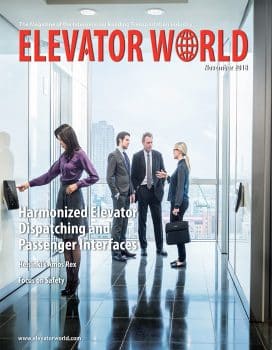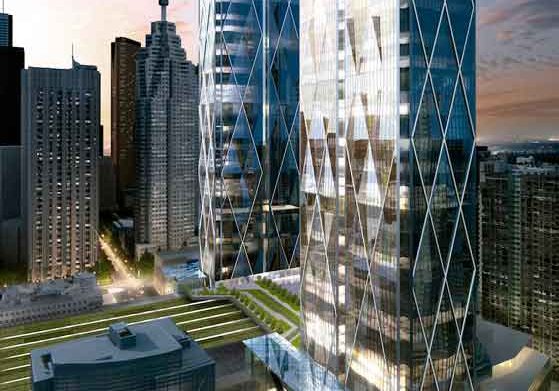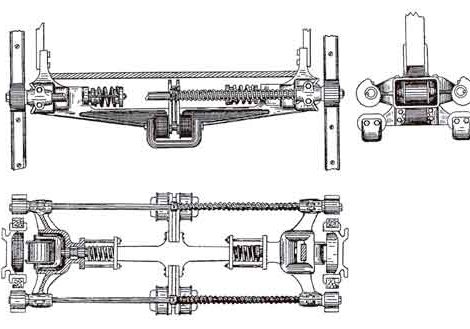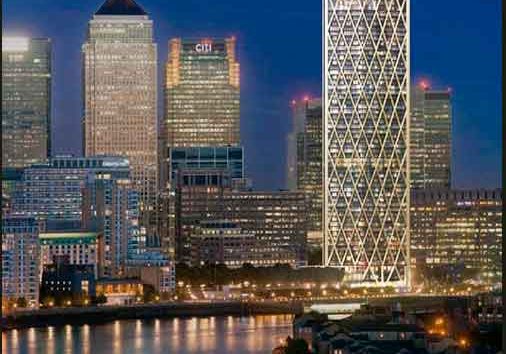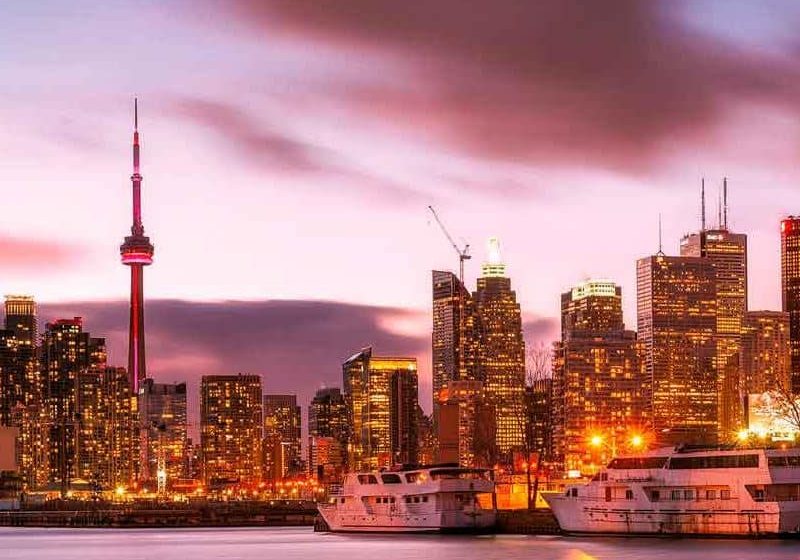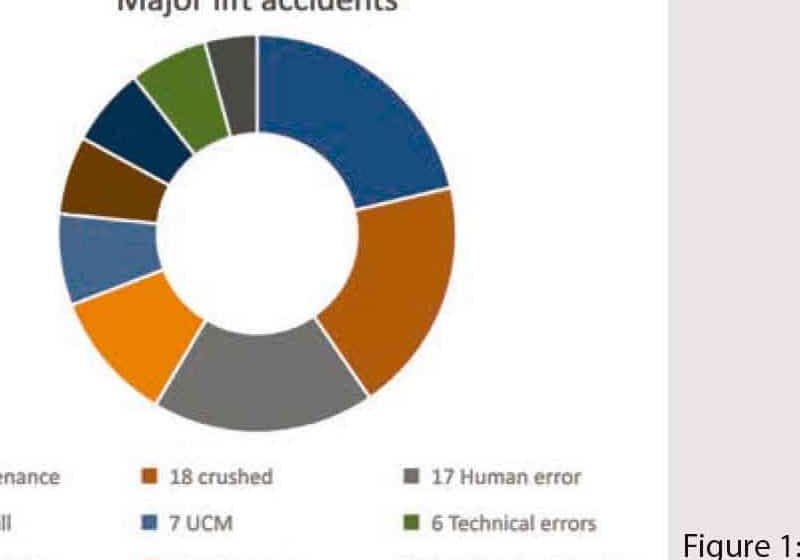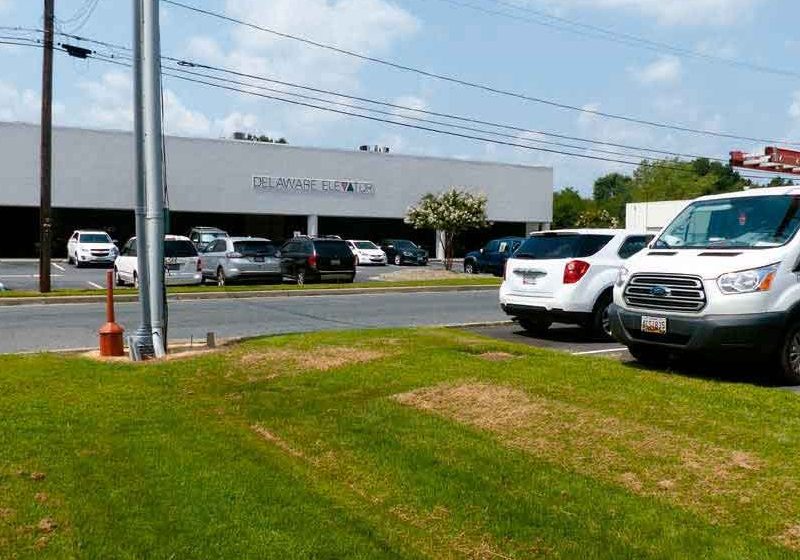Willis Tower Renovation Centerpiece Gets Name, Tenants
The five-story, 300,000-sq.-ft. addition to Willis Tower, the centerpiece of a US$668-million renovation being undertaken by Blackstone Group, has a name and tenants, Crain’s Chicago Business reported. Catalog, an homage to the 110-story building’s past as Sears’ headquarters, will be anchored by a 14,000-sq.-ft. food hall operated by London-based Urbanspace. Rounding out the dining options will be Shake Shack, Sweetgreen, Luke’s Lobster and Taylor Gourmet. With three floors above ground and two below, Catalog will include 150,000 sq. ft. for tenants with a deck and garden and 55,000 sq. ft. of event space. It is projected to open in mid 2020. The overall tower upgrade includes a new fitness center, tenant lounges and modernized vertical-transportation system, work that was awarded to Otis (ELEVATOR WORLD, July 2018).
50-Story Office Tower Part of Revamped Plan
A 50-story, 715-ft.-tall office tower and 1.5-acre park are part of a revamped plan by Riverside Investment & Development and Convexity Properties to revitalize the historic Union Station property on South Canal Street, Curbed Chicago reported.
Presented in September, the new plan designed by Goettsch Partners replaces a highly unpopular one by Solomon Cordwell Buenz that included a boxy, seven-story apartment building atop the Beaux Arts structure. Containing 1.5 million sq. ft. of space and 400 parking spots, the glassy, stepped office tower would be part of phase two and depend on whether developers are able to land an anchor tenant.
Escalators for Three CTA Stations Deemed Not Enough
The Chicago Transit Authority (CTA) said an escalator from platform to mezzanine will be installed as part of the modernization of three of its Blue Line subway stations between the Loop and O’Hare International Airport, but one critic contends that is not enough, the Chicago Tribune reported. Dating to the early 1950s, the Grand, Chicago and Division stations under Milwaukee Avenue will get cosmetic upgrades along with one escalator each. There will be no escalators from mezzanine to sidewalk and no elevators. F.K. Plous, director of communications for rail finance company Corridor Capital LLC, said that is unacceptable. CTA agreed additional escalators and elevators are needed, but said there was no money for them. All CTA stations are scheduled to become Americans with Disabilities Act- compliant by 2038.
Vining Testifies for NEII at Trade Hearing
Tom Vining, president of both the National Elevator Industry, Inc. (NEII®) and Otis Americas, testified on behalf of NEII before the U.S. Trade Representative’s (USTR) Section 301 hearing regarding increased tariffs on Chinese imports in the Harmonized Tariff Schedule of the U.S. (HTSUS) on August 21. NEII explained in the NEII Insider newsletter that the hearing took place over the course of five days with more than 350 representatives from a broad cross-section of industries providing testimony on more than 45 panels. The transcript of Vining’s statement follows, and the transcript of the entire panel can be downloaded at bit.ly/2LZ0lik. The organization added that it will supplement Vining’s testimony with written comments urging the USTR to consider removing elevator and escalator components from increased tariffs Editor
“My name is Tom Vining. I’m the president of Otis Elevator Americas and the president of the National Elevator Industry, Inc., or NEII.
“I am appearing today in my capacity as president of NEII. NEII is the premier U.S. trade association representing the global manufacturer leaders in the building- transportation industry. NEII’s members include Fujitec America, KONE, Mitsubishi Electric U.S., Otis Elevator, Schindler Elevator, thyssenkrupp Elevator and other companies. Collectively, NEII member companies operate in all 50 states and over 200 countries. Directly, NEII members employ around 50,000 U.S. workers.
“NEII commends and supports USTR’s efforts to ensure fair-trade practices and protect intellectual property. Also, I want to thank the committee for the opportunity to discuss the detrimental impact that the proposed 10-25% duties will have on NEII companies, our U.S. customers in the construction, real-estate industries and U.S. workers. The proposed product list includes 15 HTSUS subheadings of relevance to our companies, covering elevators and escalators and components, such as keypads and touchscreens, controllers and printed circuit boards. A full list of relevant HTSUS subheadings is attached to the written version on my statement.
“The earlier rounds of duty increases that USTR has imposed in this Section 301 investigation are already adversely affecting NEII companies. Additional duties will have negative impacts as follows: first, the proposed additional duties will undercut the international competitiveness of NEII companies [that] manufacture products in the U.S. Foreign competitors [that] manufacture outside the U.S. will benefit from this action, as they will neither have to absorb nor pass on to customers the higher costs created by the additional tariffs. This loss of competitiveness will have an impact on the jobs of U.S. workers who manufacture elevators and escalators, undermining efforts NEII companies have made to bring and maintain good-paying jobs in the U.S.
“Second, the increased costs will impact the construction industry. In many cases, the costs of building-transportation products are established when new buildings are designed and financed, and those higher costs will have to be absorbed by NEII companies or passed on to U.S. customers of all sizes, private and public.
“Third, the proposed additional duties will increase the cost of servicing building-transportation products. Elevators and escalators are a significant expense for building owners, consisting of both the initial acquisition costs and costs of ongoing services and parts through an approximately 25-year lifecycle. We expect the commercial and residential building owners will pass along these increased costs to companies and individuals that purchase or lease in those buildings.
“Fourth, we expect the imposition of additional duties to hinder building owners’ ability to modernize their building- transportation products, which is continually done to improve their operation and safety. With the higher costs, building owners may choose to defer important and even necessary services or upgrades critical to the quality, reliability and safety of building-transportation products.
“Fifth, NEII companies will be unable to readily rearrange their supply chains to avoid sourcing products from companies in China. One of the unique aspects of our industry is that products like elevators and escalators have an extremely demanding qualification and safety certification requirements. It can take years for NEII companies to qualify alternative suppliers, including suppliers, whether domestic or outside the U.S., [that] are currently manufacturing or have the capability to manufacture similar parts.
“Finally, building-transportation products covered by the additional tariffs are unrelated to any of the 10 high- technology sectors the Chinese government is seeking to promote through its Made in China 2025 program. The proposed additional duties will only injure NEII companies and our U.S. customers, suppliers and workers. We respectfully ask that you not impose the proposed additional duties on our products.”
Get more of Elevator World. Sign up for our free e-newsletter.

